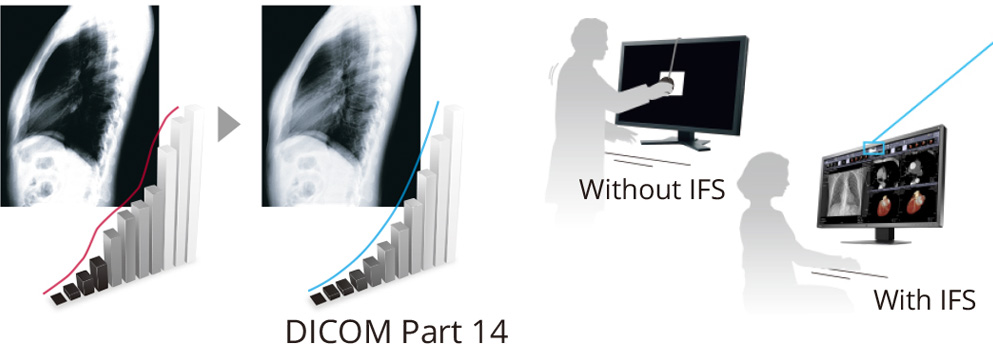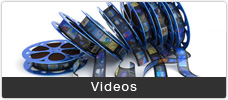Case Studies
Choosing the Ideal Monitor for Teleradiology | EIZO
Teleradiology allows hospitals to adapt to the increasing trend towards remote working for in-house radiologists so they can conveniently read from home. For the remote radiologist, however, it can be a challenge to comply with the strict regulations imposed on medical equipment under a limited budget, as well as to implement a proper diagnostic work environment that allows for their optimal concentration.
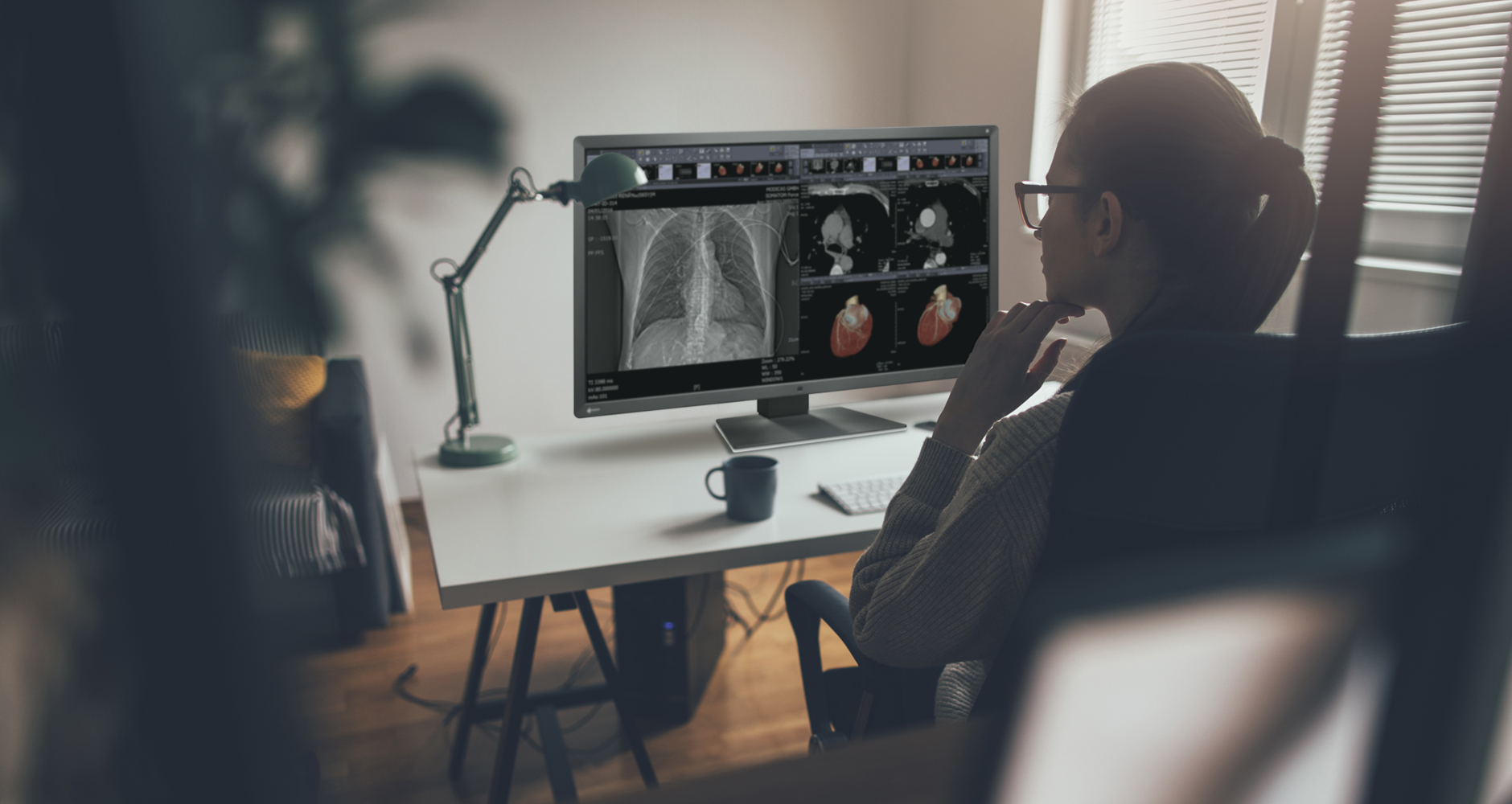
This article covers some major points to consider when choosing a monitor for remote diagnostics so you can rest assured that each interpretation is just as accurate as one made in a dedicated reading room.
01
Medical-Grade Monitor
FDA 510(k) Clearance
When preparing an environment that is teleradiology-ready, it is important to consider the accuracy of the monitor you use to view medical images. The U.S. Federal Drug Administration issues FDA 510(k) clearance for medical monitors that meet its stringent requirements for diagnostic use. Monitors that fulfill this standard are considered medical-grade and thus, can be used reliably for medical image interpretation in general radiography or other areas for which it gains approval. Using a medical-grade monitor over consumer-grade for teleradiology is integral to ensuring that what you see on the screen is optimized for medical use, so whether you are on site or working remotely, you can make diagnoses with confidence.
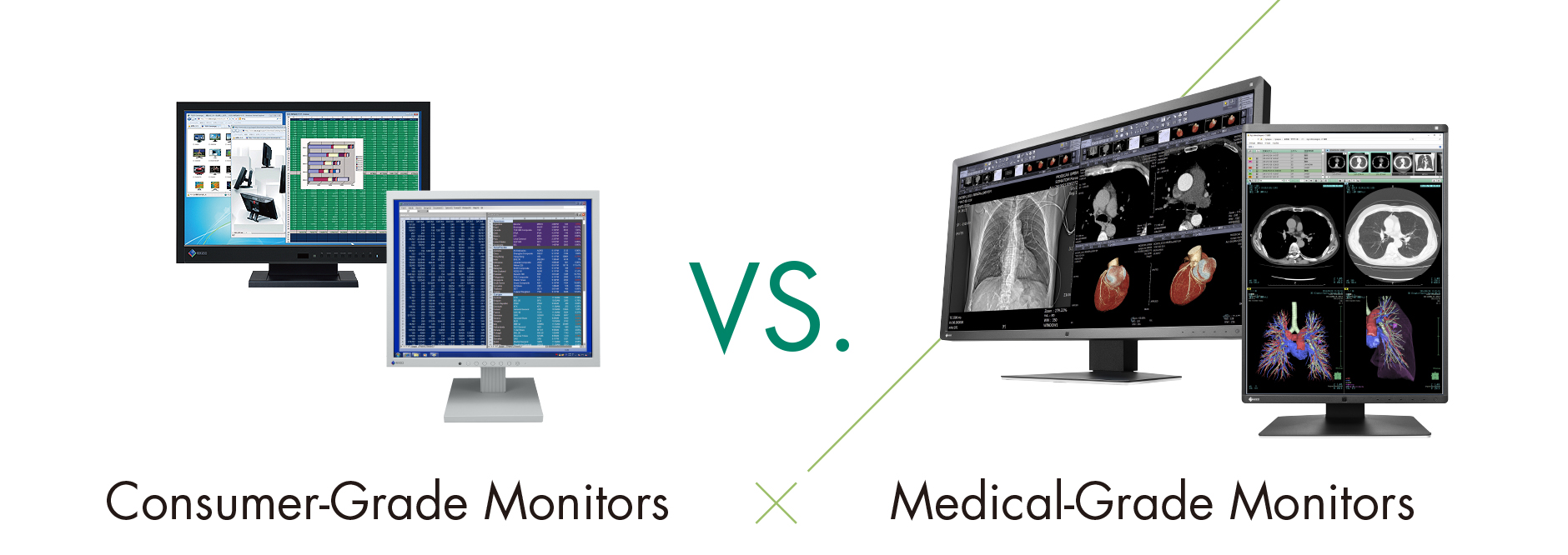
02
Maintaining DICOM Part 14
Built-In Calibration Sensor
Using a monitor that does not properly support the DICOM Part 14 standard is incapable of displaying certain gradations accurately. This may cause pertinent information for a diagnosis and potentially negatively impact patient care. To ensure that a monitor can display grayscale tones correctly according to this standard, it is necessary to readjust it through regular calibration. Select RadiForce medical monitors come equipped with a built-in calibration sensor that measures brightness and grayscale tones, then calibrates to the DICOM Part 14 standard for consistently faithful reproduction. The sensor is hands-free so does not interfere with the viewing area when in use, providing peace of mind to the teleradiologist.
|
|
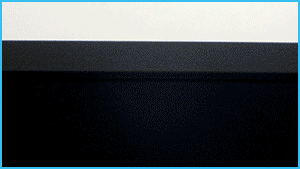 |
| IFS swings onto the screen |
03
Smart Workspace
Space-Saving and Lightweight
Not every teleradiology or home office is suited to house bulky equipment. A monitor with a space-saving design is the best way to ensure you maintain a clean and comfortable working environment. EIZO’s recommended monitor for teleradiology, the RadiForce MX315W, boasts a slim design with a built-in power supply to reduce clutter in the installation area. It is also lightweight, weighing only 11.7 kg, making it easy to carry and setup.

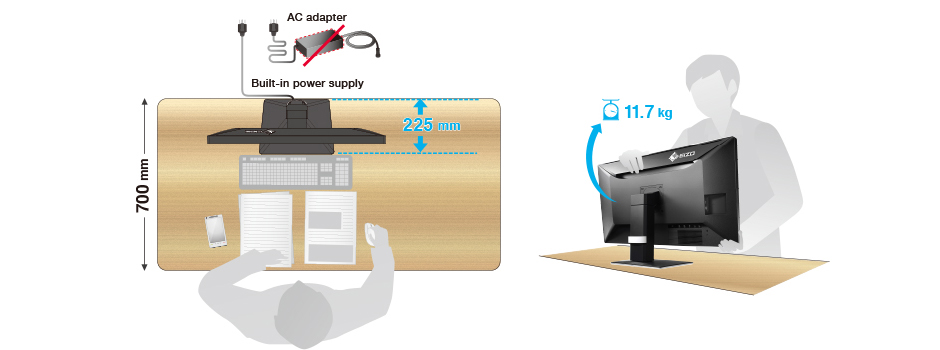
04
Working Comfortably
Optimal Positioning
|
If your monitor is not positioned properly, it can cause stiff shoulders and backpain over prolonged use. A highly versatile stand that allows a range of height adjustment, tilt, and swivel options enables you to position the screen in the most ideal way for comfortable viewing. This helps to promote increased work efficiency and alertness. |
|
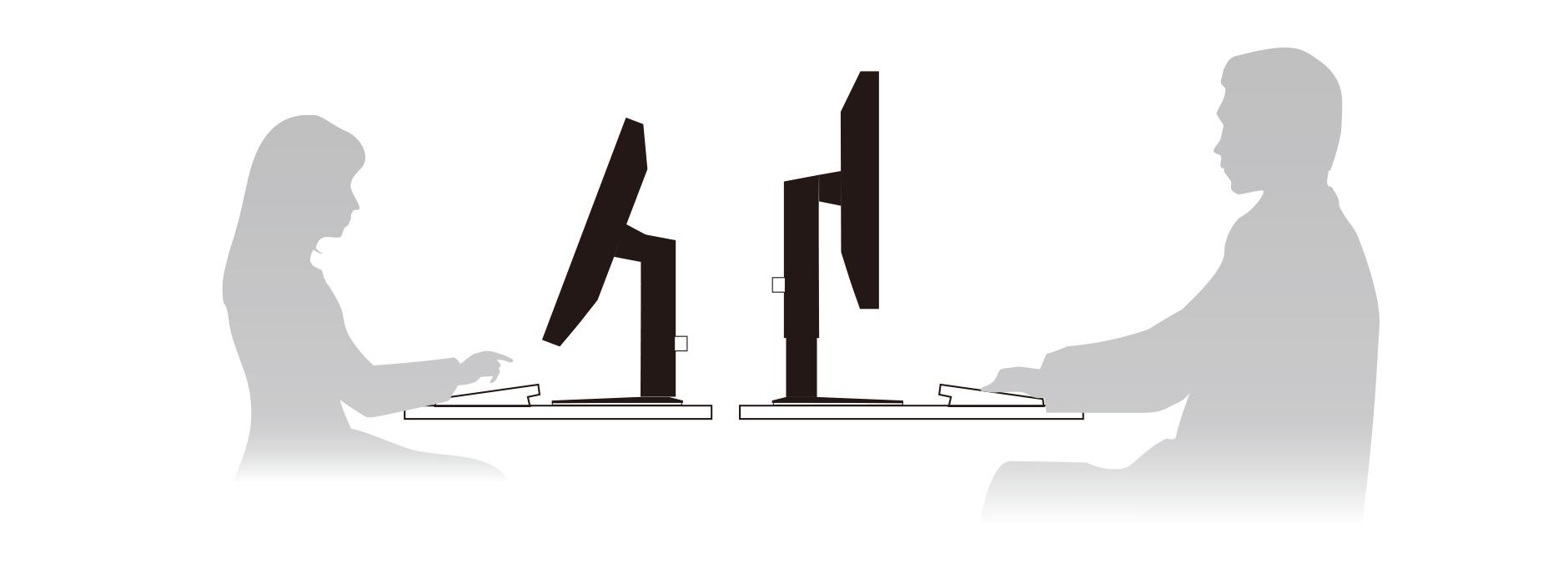
05
See Every Detail
8 Megapixel Resolution
It is not always possible to install a multi-monitor environment for teleradiology in a home office. A single monitor that is too small or low in resolution limits the radiologist’s ability to see important applications and impacts work efficiency. A monitor with 8 megapixels of information (4096 x 2160) across a large screen provides more space to view detailed, high-resolution medical images with clarity, as well as increased viewing space to freely lay out multiple windows and applications. This makes it possible to display various images, such as CT and MRI, side-by-side for more efficient comparison.
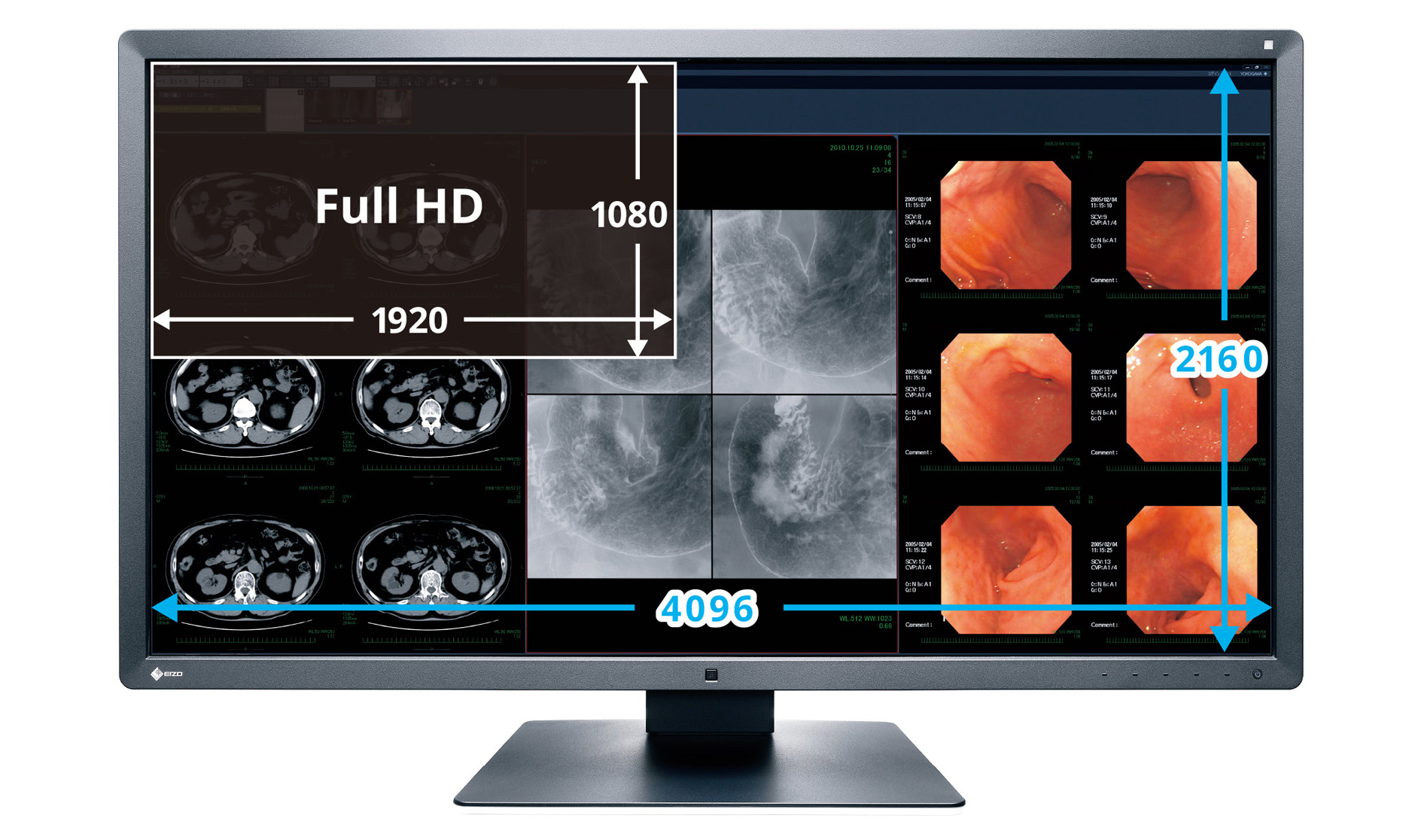
8MP (4K)
06
Comfortable Image Reading
Work-and-Flow Technology
|
As more image modalities become digitalized, radiologists are viewing an increasing volume of information on their screens. RadiForce medical monitor solutions bundled with Work-and-Flow technology alleviates the complexity of the imaging workflow with functions developed with the radiologist in mind. |
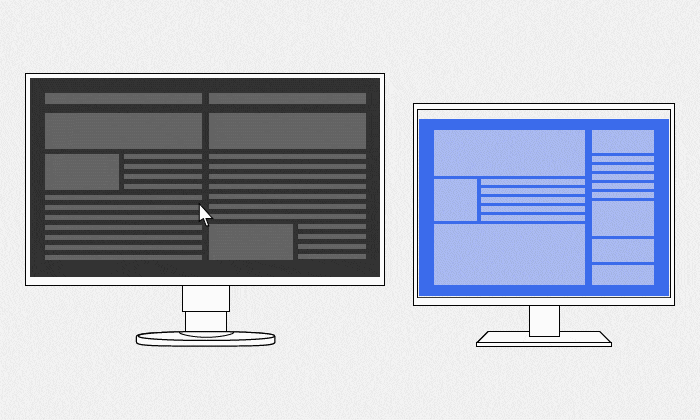
And more! |
07
The Perfect Balance
Cost Performance
With the need to adapt to telecommute-flexible work practices, it can be a challenge for hospitals to adequately equip teleradiologists to be remote-work ready. Whether it is a temporary or permanent installation measure, careful consideration of the equipment’s ability to comply with medical standards while meeting varying budgets is important. EIZO’s MX-Series of medical monitors offer exceptional cost performance, making them ideal for reviewing medical images optimized for DICOM Part 14 without compromising on medical-grade quality.
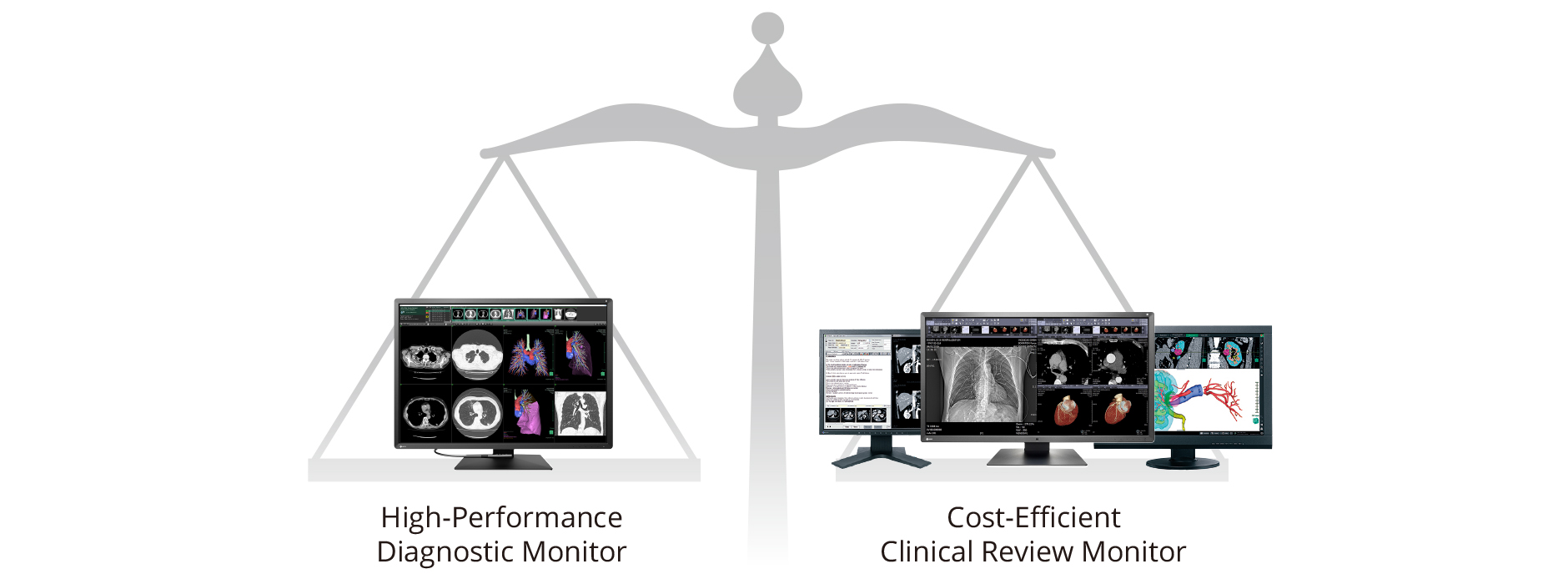
08
Peace of Mind
Quality Control Server Hosting
It can be difficult for hospitals to maintain quality control of monitors situated at remote locations, not to mention the additional burden on the remote radiologist if they are required to carry this out themselves. EIZO can set up and host a quality control web server, allowing hospitals to centrally maintain quality control for monitors on the network, so administrators can conduct necessary QC operations and relieve the burden on teleradiologists.

Testimonial
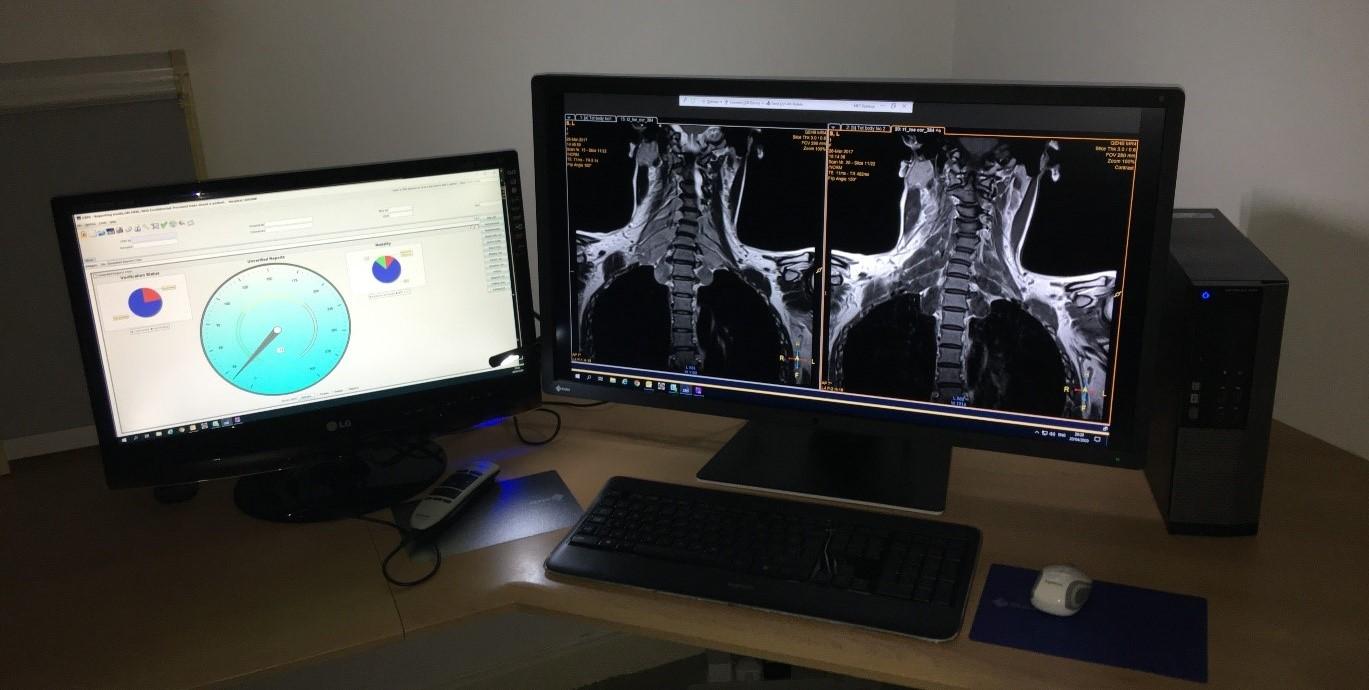
“In the midst of this pandemic, I had to set up homeworking to minimize unnecessary travel, so I contacted EIZO and Taurus Medical Solutions and within 3 working days, I was provided with an EIZO RadiForce MX315W with a compatible graphics card to get up and running. The quality of the 31.1" monitor was superb in clarity. The single widescreen is much lighter than dual screen monitors. The addition of a RadiLight provided some background lighting which reduced strain on the eyes during prolonged reporting. Overall, it is the best investment I made to improve my work process, and it is the ease with which both EIZO and Taurus provided it that made the purchase a painless experience.”
Dr. Calvin Soh, Consultant Neuroradiologist at Manchester Royal Infirmary
Recommended for Teleradiology
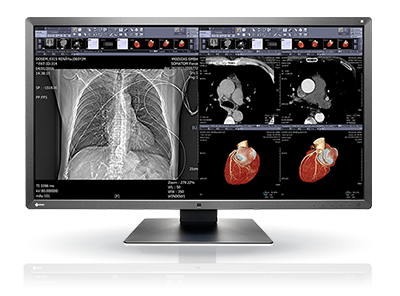

31.1" (79 cm) Color LCD Monitor
Further Comfort
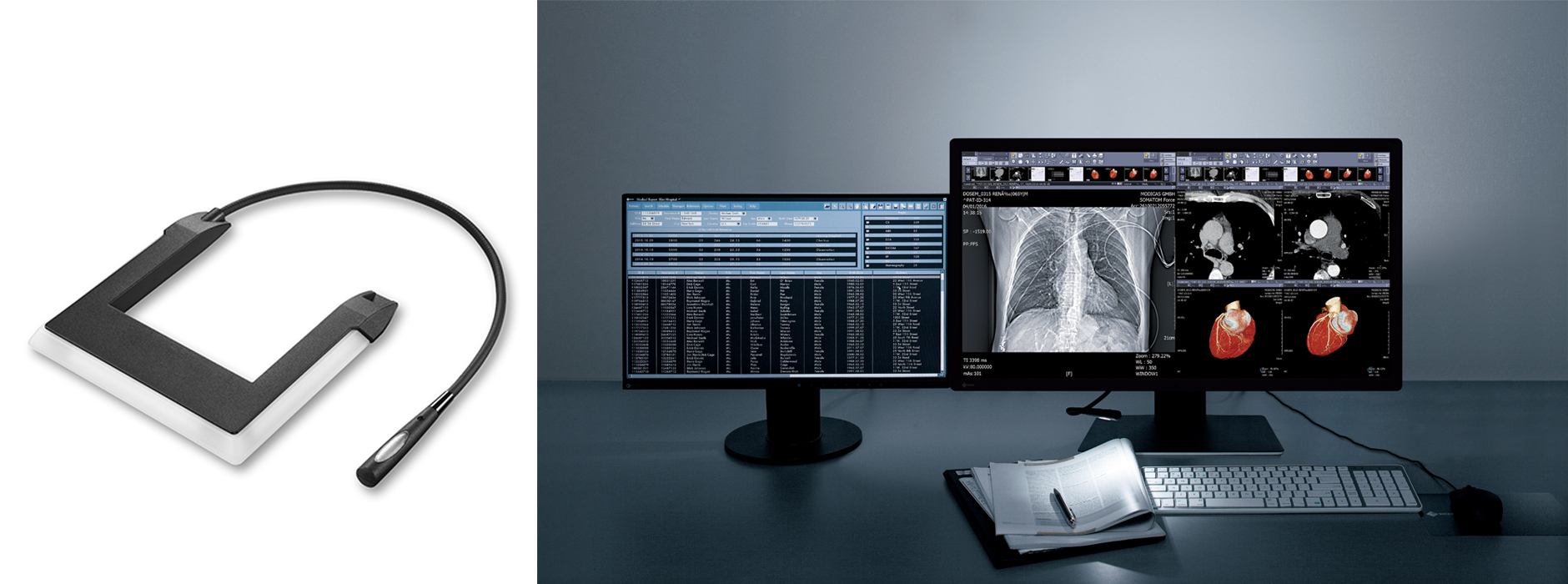
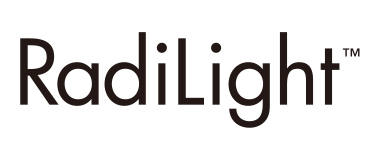
Comfort Light for Reading Rooms

